
 Flash News
Flash News
SPAK conducts searches at Ergys Agas' businesses and residences, seizes two vehicles
Members of criminal organizations! 3 Albanians extradited from Dubai today
Berisha warns of new facts about the electoral farce: Don't forget that the laptop hasn't started talking yet
Berisha to gather political leaders tomorrow
Vote recount, KAS member: Less than 10% of ballot boxes have been counted, some candidates have undeserved ballots
Media capture/ EC deadline for Rama: No further steps for the EU without approving the media law
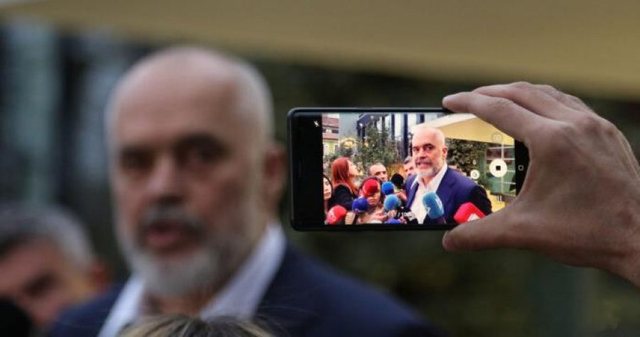
The European Commission has set a deadline for the government of Edi Rama, which is tasked with liberalizing the media market by adopting a media package if it wants to move forward in membership negotiations. In a direct statement to the EU-Albania Stabilization and Association Parliamentary Committee, the Commission representative, Sigrid Brettel, set the majority a clear deadline: by October, several legal packages for the media, as well as several key reforms involving corruption, justice and gender equality, must be adopted.
"Before the summer holidays, we expect the approval of the law on the Asset Recovery Office, and then in September and October, with the start of the new legislature, we expect several important legal packages," said Brettel, who listed 4 legal packages here.
It concerns, firstly, an anti-corruption package (including conflict of interest, whistleblower protection), secondly, a media package, thirdly, a legal package for justice, especially for non-magistrate members of the High Judicial Council and the High Prosecutorial Council, and fourthly, a gender equality package.
Among them, the media package occupies a central place, not simply for technical reasons, but because it constitutes an old and unresolved knot in Albania's rapprochement with the European Union. Listed within Cluster 1 – the most critical chapter group for the negotiations – this package also constitutes a concrete test for Prime Minister Rama, who is supposed to take a step back in the total control he exercises over the country's televisions.
In a preliminary report, the European Union has already openly expressed concern about the current state of the media in Albania: “Albania is still expected to adopt a comprehensive reform of the legal and regulatory framework for freedom of expression and the media, in particular to strengthen the independence and efficiency of the Audiovisual Media Authority and the public broadcaster,” the text emphasizes, which, unlike the usual bureaucratic formulations of Brussels, gives this problem special weight.
The legal changes are expected to address the high concentration in the Albanian media market – a phenomenon that has so far not even encountered the political will to discuss, let alone fix. The two largest television stations, Klan and Top Channel, control about 64 percent of the market by revenue, while together with Vizion Plus and A2CNN they account for almost 80 percent of the market.
In this context, the EU's demand to increase transparency on the financing, ownership and allocation of state advertising is a direct challenge to the model of vertical control of public information.
Another aspect that Brussels has been pushing for is the decriminalization of defamation – a step that would once and for all separate free speech from criminal punishment. This demand has been reiterated for years by both the EU and the OSCE/ODIHR, but no government has so far had the will to translate it into law.
In the same vein, the OSCE/ODIHR preliminary report on the local elections of May 11 painted a grim picture of media capture in Albania. According to observers, news is often produced by political parties themselves and broadcast by the media as if it were independent material, without any editorial filter, without labeling, without professional distance.
“Campaign materials were provided by political parties and broadcast by television stations without being marked as such, as required by the Electoral Code, while the CEC took no measures to stop this practice,” the OSCE-ODIHR report stated.
Investigative journalism is on the verge of extinction, while most major media outlets are kept alive by state advertising and public contracts – a relationship of dependency that has transformed the media into an instrument of propaganda, not a watchdog of power.
“The independence, diversity and integrity of news available to voters have been undermined by the media’s dependence on non-transparent funding, often linked to political and business interests,” notes the OSCE/ODIHR.
According to the same report, the concentration of media ownership in a few hands undermines pluralism, while the control of the advertising market by politically connected actors makes it impossible to distribute financial resources fairly and transparently.
However, it remains to be seen what real change the adoption of a legal package for the media, as required by the European Union, could bring, as there is always a risk that the new law will be nothing more than a facade, because the status quo has much deeper roots./ Lapsi.al
Latest news


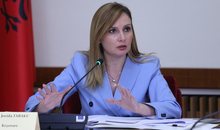

EU divided over Israel's right to bomb Iran
2025-06-19 16:10:42

Analysis/ How is Russia spreading propaganda in the Albanian language?
2025-06-19 15:49:18
Session in the Criminal Court, MP Qani Xhafa is fined
2025-06-19 15:33:30
Members of criminal organizations! 3 Albanians extradited from Dubai today
2025-06-19 15:20:04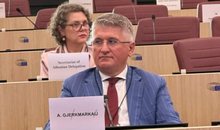

Lufta/ Zelenskyy bën thirrje për rritjen e presionit ndaj Rusisë
2025-06-19 14:56:02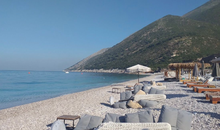

Netanyahu warns Iran after attacks on Israeli hospital
2025-06-19 14:34:53

Attempted to enter Albania with false documents, 25-year-old arrested
2025-06-19 14:18:20
Psychology explains what happens in the brain of a person contemplating suicide
2025-06-19 14:01:25

These are the coldest zodiac signs
2025-06-19 13:45:18

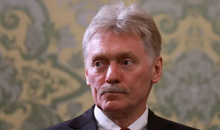

Albanian man dies in hospital after accident in Italy
2025-06-19 13:02:45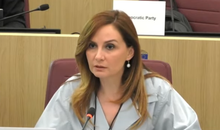


Berisha to gather political leaders tomorrow
2025-06-19 12:32:23
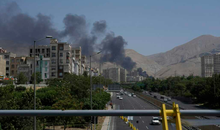
Iran confirms meeting with representatives of Britain, Germany and France
2025-06-19 12:11:33

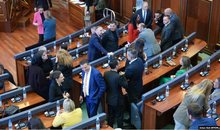
The constitution of the Kosovo Assembly fails for the 34th time
2025-06-19 11:30:28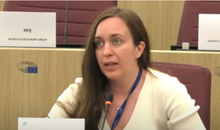
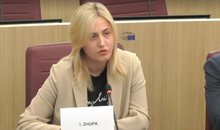

Albania's nuclear bomb!
2025-06-19 10:52:02

Prej 4 ditësh e zhdukur, humb gjurmët adoleshentja shqiptare në Greqi
2025-06-19 10:33:11
Choosing a child's name, expert reveals three key factors
2025-06-19 10:29:17
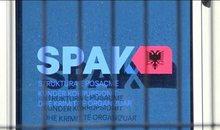

Another request for release from house arrest
2025-06-19 09:49:14
Who is the 18-year-old who stole the crown of "Miss Albania 2025"?
2025-06-19 09:41:37

Arrestohet punonjësi i shërbimeve funerale, vidhte në varrezat e Korçës
2025-06-19 09:13:03
Foreign exchange, June 19, 2025
2025-06-19 09:00:33
Montenegrin arrested in Spain for involvement in a structured criminal group
2025-06-19 08:55:04
BBC: Trump has approved the plan to attack Iran
2025-06-19 08:45:01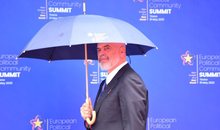
Draft reports from Brussels expose 'government facade' towards integration
2025-06-19 08:31:21
Horoscope, what do the stars have in store for you today?
2025-06-19 08:17:33

Morning Post/ In 2 lines: What mattered yesterday in Albania
2025-06-19 07:49:56

Zhulali: EU does not tolerate basic standards, membership is a political process
2025-06-18 22:40:09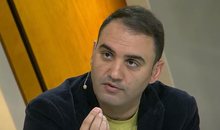
Recount process/Këlliçi: DP seeks 14th mandate in Tirana
2025-06-18 22:11:20
Hell in the Gjadri camp, 45 attempted injuries and violent protests
2025-06-18 21:49:49


Israel strikes National Police headquarters in Iran, several injured reported
2025-06-18 21:29:11

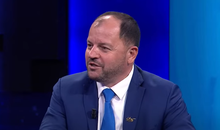
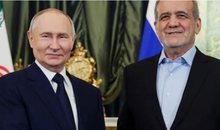

Why World War III is 'speaking', and the Albanian PM Rama is silent
2025-06-18 20:08:03
Avoid drying towels in the sun, here's how to keep them soft
2025-06-18 20:07:53

Cannabis legalization in Albania, new law, old risks
2025-06-18 19:39:54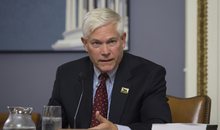
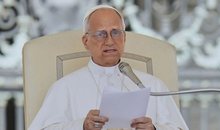
Pope Leo XIV calls for peace: Advanced weapons are temptations we must reject
2025-06-18 19:22:29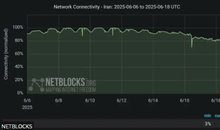
Iran faces near-total internet blackout
2025-06-18 19:07:09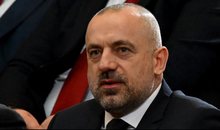

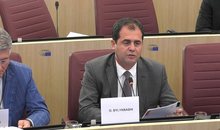
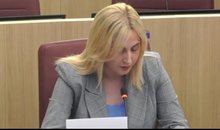

INSTAT: Heart diseases, the leading cause of death in Albania during 2024
2025-06-18 18:05:33



Trump does not rule out the possibility of striking Iran
2025-06-18 17:19:35
Accident on the Grand Ring Road, two cars collide
2025-06-18 17:05:57
Kume: Vote recount increases credibility
2025-06-18 16:59:38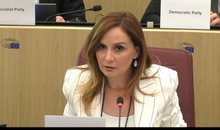
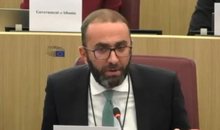

Ndërron jetë ish-futbollisti dhe trajneri i njohur shqiptar
2025-06-18 16:17:02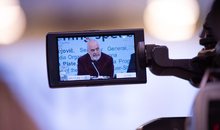
EU calls for "comprehensive reforms" for the media in Albania
2025-06-18 16:06:20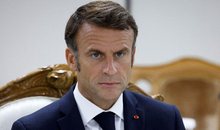
Macron convenes France's Defense and Security Council
2025-06-18 16:04:29
Israeli attacks in the last 24 hours, at least 140 killed in Gaza
2025-06-18 15:58:13
Reflection on Rama's kneeling before Meloni
2025-06-18 15:52:53

Conference League second round draw, Albanian teams learn potential opponents
2025-06-18 15:29:29

Eurostat 2024: Prices in Albania are catching up with EU levels
2025-06-18 15:07:03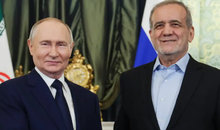
War/ Why is Russia hesitant to help Iran in its conflict with Israel?
2025-06-18 15:00:19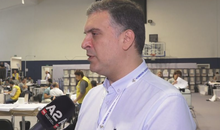
Blushi: Ilir Meta's voice will resound louder than ever in the new Parliament
2025-06-18 14:50:42
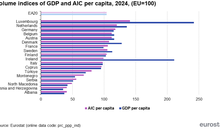


The Electoral College also rejects the DP's complaint for Kukës and Gjirokastra
2025-06-18 14:09:49
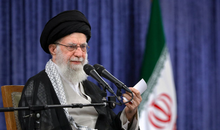

The College rejects the DP's request for invalidation of the elections in Lezha
2025-06-18 13:41:57
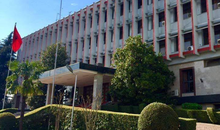
Evacuation of 5 Albanians from Israel, 3 of them arrive in Albania
2025-06-18 13:23:34
